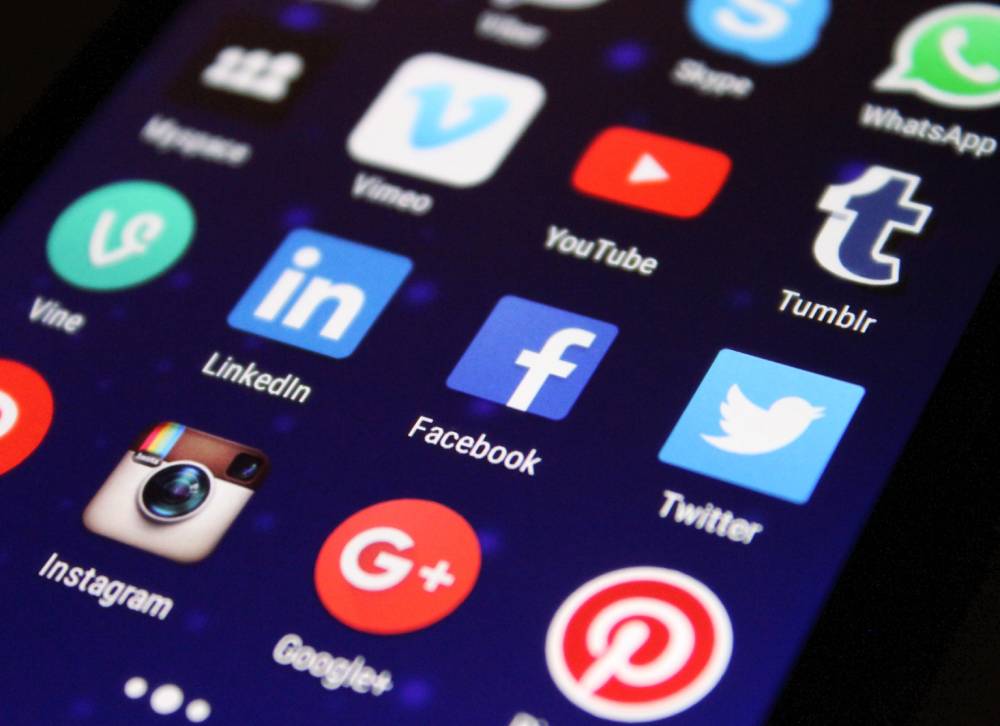An article discussing the significance of social media in marketing, presenting six compelling reasons why it’s crucial for business growth, and offering insights on utilizing social media effectively for profitability.
Why Social Media Marketing Is Important?
For business owners, it is essential not to underestimate the importance of social media. The rationale is straightforward: your customers are actively involved with social media every day. If your business is absent from these platforms, you’re missing out on a valuable chance to connect with your target audience and grow your enterprise.
Here are four reasons why social media marketing is essential for business growth:
- Reach a wider audience: Leveraging social media is unparalleled in its capacity to reach a wide-ranging audience, given its 3 billion active users.
- Cost-effective: Social media marketing is a notably cost-effective method for promoting your business. You can create and share content without any cost, only incurring expenses when you choose to boost a post or run an advertising campaign.
- Increase brand awareness and loyalty: Social media provides you with the means to build connections with your customer base and nurture a community centered around your brand. Consequently, this leads to the gradual development of brand awareness and loyalty.
- Generate leads and sales: Last but not least, social media acts as a powerful tool for generating leads and boosting sales for your business. By sharing valuable content and implementing strategic advertising campaigns, you can steer traffic to your website and effectively transform visitors into customers.
6 Ways Social Media Marketing Benefits Businesses
Leveraging social media marketing provides businesses with numerous benefits, and increased exposure stands out as one of the most prominent advantages. When you create and share content on social media platforms, you significantly increase the chances of it reaching a larger audience. The more people exposed to your content, the greater the likelihood that they will become interested in what your business has to offer.
In addition to increased exposure, social media marketing plays a vital role in cultivating connections with both potential and current customers. Through active interaction with individuals on social media, you have the chance to build meaningful relationships that go beyond mere product or service transactions. When people sense a genuine connection and trust in your business, their inclination to engage in transactions with you significantly rises.
Another noteworthy benefit of social media marketing is its ability to gather data about your target audience. By using analytics tools, you can track the demographics of your content viewers, their engagement duration, and their responses to it. Such data is invaluable in shaping the roadmap for your future marketing efforts.
In the end, social media marketing can significantly boost brand recognition and cultivate loyalty. When individuals interact with your brand on social media, it leaves a lasting impression, making them more likely to remember and endorse it. This ripple effect can lead to an increased number of sales and a dedicated base of repeat customers in the long term.
How to Create a Social Media Marketing Plan for Your Business?
For business owners, neglecting the impact of social media is no longer a viable choice. To create an efficient social media marketing strategy customized for your business, there are several essential factors to keep in mind.
- Define Your Goals: Before crafting a social media marketing strategy, it’s crucial to establish your goals. Are you looking to enhance brand visibility, increase website traffic, or generate leads? Once you’ve defined your objectives, you can begin the process of creating content and developing strategies that align with achieving those goals.
- Identify Your Target Audience: Who makes up your target audience? What are their demographic traits and interests? Once you have a comprehensive understanding of the people you want to engage with, you can begin creating content that aligns with their preferences.
- Choose the Right Platforms: There are numerous social media platforms to choose from, underscoring the importance of selecting the ones that best suit your business and where your target audience is most active. While some businesses thrive on Facebook, others find greater success on platforms like Instagram or Twitter. The choice hinges on your industry and the demographics of your intended audience.
- Create Engaging Content: A pivotal factor for the success of your social media marketing strategy relies on the regular sharing of engaging content. This involves the dissemination of intriguing blog posts, interactive infographics, captivating images, entertaining videos, and more – all crafted to capture the attention of your target audience and inspire them to explore your business offerings further.
- Monitor Your Progress: Closely monitoring the performance of your social media marketing strategy and making necessary adjustments is of utmost importance. Utilize analytics tools to track your progress, identify what is working effectively, and pinpoint areas that need improvement.
By following these tips, you can create a social media marketing plan that will help you achieve your business goals.
How to Use Social Media for Marketing Campaigns?
For any business owner, ignoring social media is not a choice. It stands as one of the most powerful marketing tools in your arsenal and is unquestionably essential for building and maintaining a successful brand.
Here are some tips for using social media effectively in your marketing campaigns:
- Harness the potential of social media to nurture strong connections with your customer base. Ensure you provide timely and courteous responses to comments and inquiries, showcasing your sincere commitment to your customers and their engagement with your brand.
- Utilize social media to share valuable content. Your followers will appreciate informative and practical information that enhances their daily lives. Share blog posts, infographics, images, and various types of content that can genuinely assist them.
- Harness the influence of social media to organize promotions and contests. This proves to be a potent tactic for increasing engagement and igniting conversations about your brand. However, it’s crucial to conduct these promotions with integrity, ensuring that they truly benefit your customers or followers, rather than solely serving your financial interests.
- Utilize social media as a platform to showcase your brand’s distinct personality. Let your unique identity shine! People prefer to interact with brands they truly enjoy and with which they feel a personal connection.
The Best Times to Post on Social Media Platforms
The best posting times on various social media platforms may vary, but there are some general principles that can act as useful guidelines.
On Facebook, the ideal times for posting typically fall on weekdays between 1-3pm. This is because people often take breaks from work during these hours and spend time scrolling through their newsfeeds.
Instagram follows a somewhat different pattern, with the most optimal posting times usually occurring later in the day and on weekends. This is because there’s a higher likelihood of people using their mobile devices during these times, which, in turn, increases the visibility of your posts.
Twitter, like many other platforms, provides different optimal posting times depending on your target audience. For businesses, it’s generally advisable to tweet during weekday business hours when most people are actively checking their Twitter feeds. However, if your goal is to connect with a younger demographic, evenings and weekends often prove to be more favorable times for tweeting.
Pinterest aligns with Instagram when it comes to ideal posting times, as both platforms tend to yield better results later in the day and on weekends. This is because people often use Pinterest during their leisure or downtime, which frequently falls within these timeframes.
LinkedIn, being a platform predominantly focused on professional networking, is most active during weekdays from 8 am to 5 pm. These hours correspond with the standard workday when the majority of professionals are actively involved in reviewing their LinkedIn feeds and engaging with other users.
Conclusion
Undoubtedly, social media holds an essential place in business marketing. Through a strong presence on social platforms, you can broaden your reach, cultivate relationships, and ultimately drive your business to success. Neglecting social media as a marketing tool represents a substantial missed opportunity. So, why delay any further? Dive in today and witness the remarkable results for yourself!




